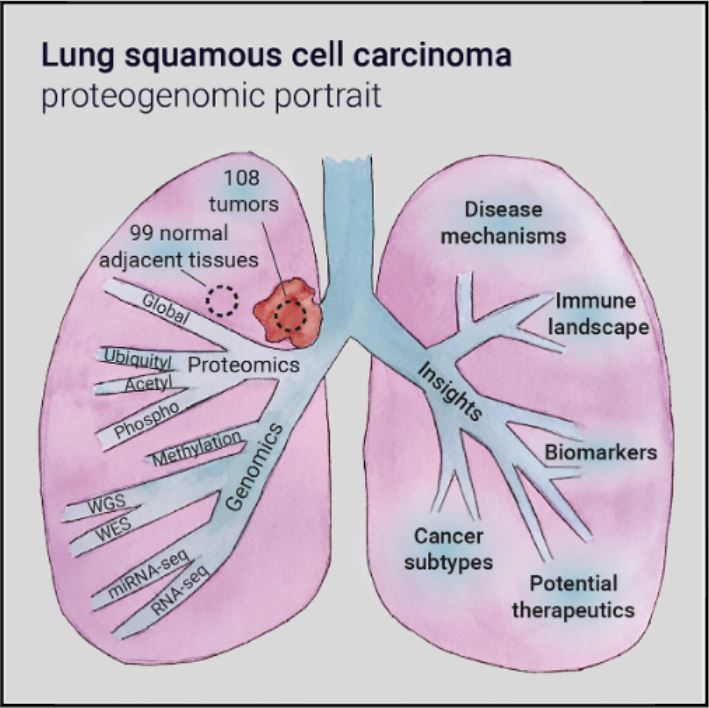Jurisdiction:
United States
Organ System:
Lung
Funding Organizations:
- National Cancer Institute, USA
- National Institutes of Health, USA
Research Organizations:
- Broad Institute of MIT and Harvard, USA
- Baylor College of Medicine, USA
- Icahn School of Medicine at Mount Sinai, USA
- University of Michigan, USA
- The University of Texas MD Anderson Cancer Center, USA
- Memorial Sloan Kettering Cancer Center, USA
- University of Miami Miller School of Medicine, USA
- Washington University in St. Louis, USA
- New York University School of Medicine, USA
- National Cancer Institute, USA
Principal Investigators
:- Michael A Gillette
- D.R. Mani
- Bing Zhang
Publication:
External Links:
Lung squamous cell carcinoma (LSCC) remains a leading cause of cancer death with few therapeutic options. We characterized the proteogenomic landscape of LSCC, providing a deeper exposition of LSCC biology with potential therapeutic implications. We identify NSD3 as an alternative driver in FGFR1-amplified tumors and low-p63 tumors overexpressing the therapeutic target survivin. SOX2 is considered undruggable, but our analyses provide rationale for exploring chromatin modifiers such as LSD1 and EZH2 to target SOX2-overexpressing tumors. Our data support complex regulation of metabolic pathways by crosstalk between post-translational modifications including ubiquitylation. Numerous immune-related proteogenomic observations suggest directions for further investigation. Proteogenomic dissection of CDKN2A mutations argue for more nuanced assessment of RB1 protein expression and phosphorylation before declaring CDK4/6 inhibition unsuccessful. Finally, triangulation between LSCC, LUAD, and HNSCC identified both unique and common therapeutic vulnerabilities. These observations and proteogenomics data resources may guide research into the biology and treatment of LSCC.

